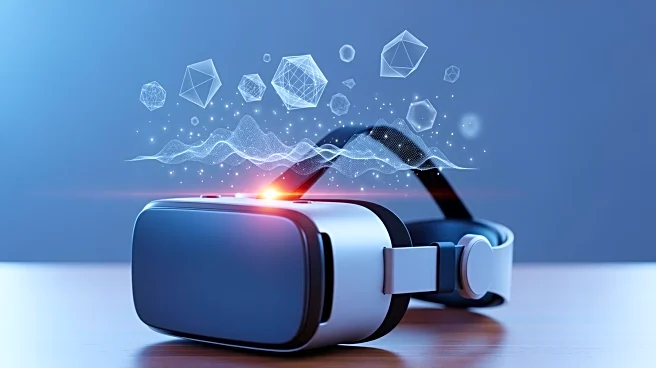What's Happening?
Pocket Lands, a new mixed reality game developed by Thomas van den Berge, is set to launch in early access on December 11 on the Meta Quest platform. The game allows players to create and explore miniature worlds using mixed reality (MR) technology. Players
can build dioramas in their living rooms and then explore them in virtual reality (VR) using hand tracking controls. The game features various biomes and promises multiple locomotion options for immersive exploration. The full release, targeted for the second half of 2026, aims to expand the game with cave systems, underground biomes, roaming creatures, and multiplayer build battles.
Why It's Important?
The launch of Pocket Lands represents a significant advancement in mixed reality gaming, blending physical and virtual environments to create immersive experiences. This development could influence the future of gaming by encouraging more interactive and creative gameplay. The game's ability to resize dioramas to fit physical spaces and its use of hand tracking controls highlight the potential for MR technology to enhance user engagement. As the gaming industry continues to evolve, Pocket Lands may set a precedent for future MR and VR games, impacting developers and players alike.
What's Next?
Following its early access release, Pocket Lands will continue to develop towards its full release in 2026. The game plans to introduce new features such as cave systems, additional biomes, and multiplayer modes, which could attract a broader audience and increase player retention. The success of Pocket Lands in early access could influence other developers to explore similar MR and VR integrations, potentially leading to more innovative gaming experiences. Stakeholders in the gaming industry, including developers and platform providers, will likely monitor the game's progress and reception closely.
Beyond the Headlines
Pocket Lands' integration of mixed reality technology raises questions about the future of gaming and its impact on player interaction. The game's ability to blend physical and virtual spaces may lead to new ethical considerations regarding privacy and data security, as players interact with digital environments in their homes. Additionally, the game's multiplayer features could foster community building and collaboration, highlighting the social potential of MR and VR technologies.
















